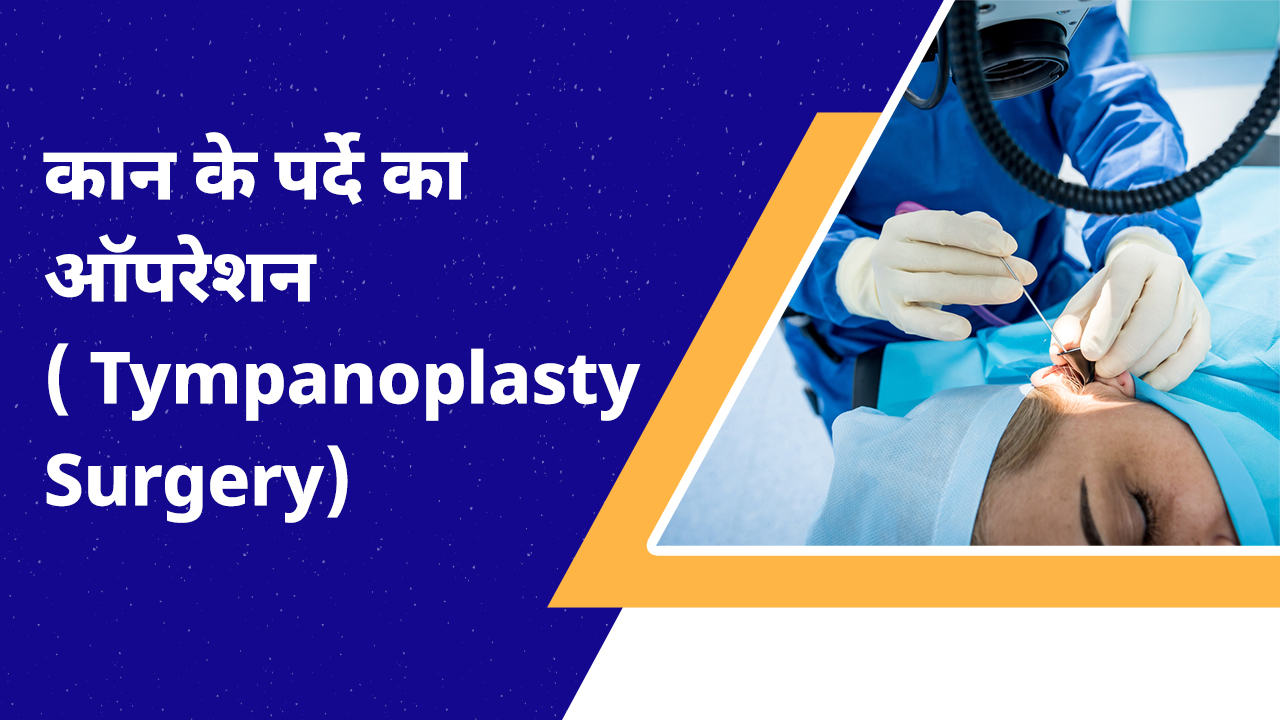Tympanoplasty Surgery (Eardrum Surgery) | कान के पर्दे का ऑपरेशन | टिम्पैनोप्लास्टी सर्जरी | Can a ruptured eardrum be treated? What is Tympanoplasty Surgery?
In this video, SimpliHealth expert and ENT specialist Dr. Raman Abrol discusses a corrective surgery called Tympanoplasty Surgery. It is commonly known as eardrum surgery.
Having a busted eardrum is not an unusual condition. A lot of people walk in with ruptured ear drums. It is a treatable condition, and sitting on it is not advisable. This can cause ear infections, discharge, and also hearing loss.
How is a ruptured eardrum treated?
The primary treatment for a ruptured ear drum is surgery. This surgery is called Tympanoplasty or Myringoplasty. Abrol ENT Centre and Research Institute is a specialized center for ear surgery, and all types of ear surgeries are performed.
Tympanoplasty Surgery
Let’s talk about tympanoplasty. In this surgery, the eardrum is replaced with the patient’s own tissue as a patch; then, over time, this patch heals. No artificial elements are used to patch the wound.
This surgery is primarily performed under general anesthesia. But at some centers, this surgery is performed under local anesthesia, where the patient is aware of the surrounding but cannot feel anything, and the pain is zero to nothing.
This surgery requires a small incision behind the ear or can be done from the inside. In any case, there is no scarring. So even cosmetically, it is convenient as, over time, there is no visible incision or scarring.
What precautions should be taken after the surgery?
After this surgery, there are a few precautions to take. There is a bandage over the ear for 7-8 days, and then there are stitches. So the patient would take 3-4 weeks to heal completely.
In some cases, the graph used to repair the rupture is unsuccessful. This is called a failed tympanoplasty. Any sort of disruption caused by the patient during the healing process is the primary factor for this failure. In very few cases, it could be the surgeon, but mostly it is the patient factor.
For example, if the patient has a nose problem or is prone to cold. If the patient catches an infection or cold during the healing period, it may lead to the failure of the surgery.
In this case, the patient is to get a revision surgery done after a significant amount of time, almost 6-8 months or a year. This surgery would only be performed when the previous surgery wounds have completely healed, which can also take a year.
Are there any complications?
Another minor complication is that, in 2-4% of cases, the hearing loss cannot be corrected. But in most cases, when the eardrum is repaired, the hearing loss is automatically corrected.
Besides the ruptured ear drum, the other problem is the ear bone problem. This problem is realised later during the surgery. At our centre, we fix the bone problem to restore hearing. But not all surgeons touch the bone in one sitting. They fix the eardrum first and then fix the bone to restore the hearing to how it was.
This was the overview of the complications during the surgery. The rest of the complications are minor, caused by anaesthesia, dizziness or sleepiness. The patient recovery time is only 3-4 weeks. The patient can resume their daily activities after the bandages come off.
There are no restrictions to be followed after this period; only make sure to let water get into your ears for almost a month after the surgery.
Our centre specialises in this surgery, and if you or anyone you know is looking for this treatment, please contact us and book an appointment.
